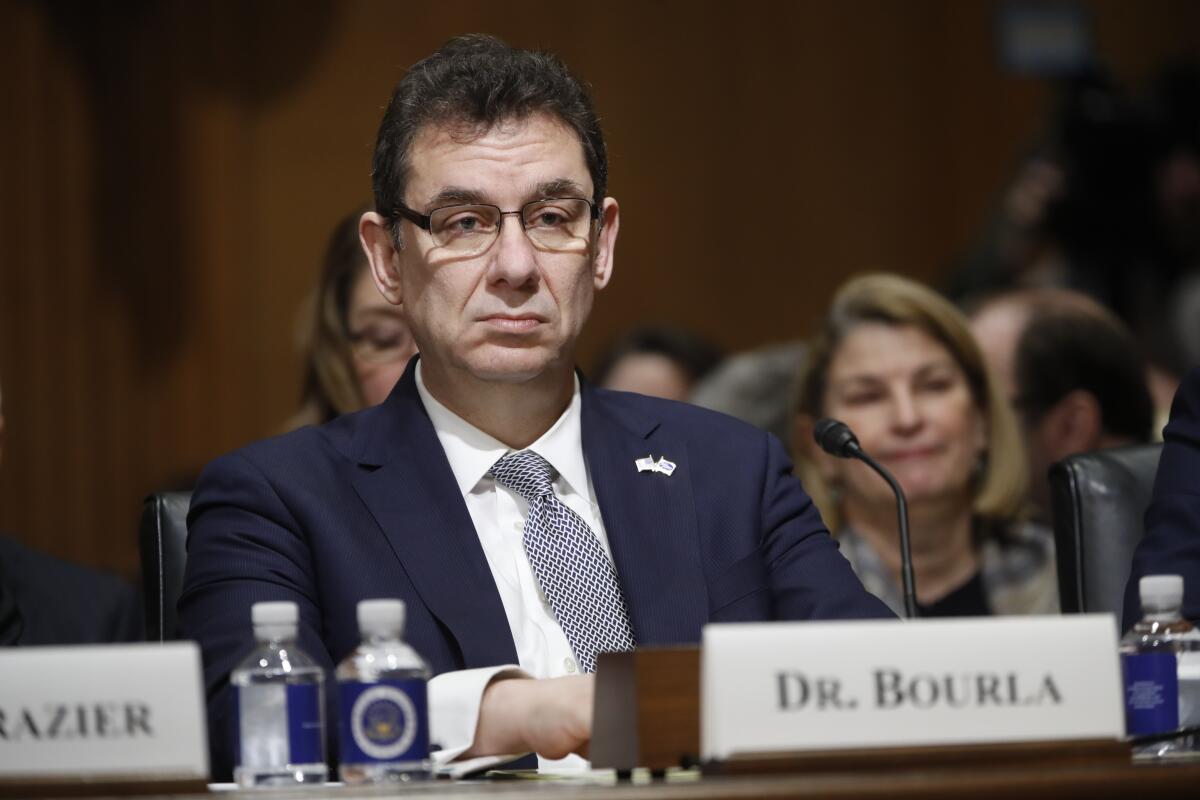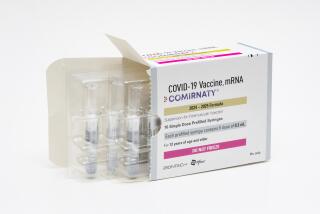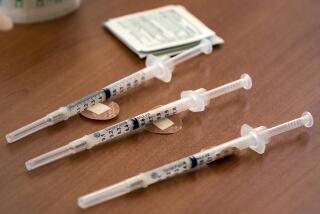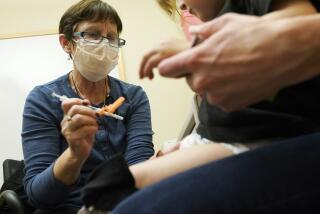Pfizer says mid-November is earliest it can seek coronavirus vaccine approval

- Share via
NEW YORK — Pharmaceutical giant Pfizer says that the earliest it can request emergency authorization of its COVID-19 vaccine is the third week of November — and that’s if everything goes well.
Despite President Trump’s repeated promises of a vaccine before election day, scientists have been cautioning that it’s unlikely that data showing a shot actually works would come until November or December.
Moderna, another leading U.S. contender in the race to come up with an effective vaccine, previously announced that the earliest it could seek authorization of its own candidate would be Nov. 25.
Pfizer CEO Albert Bourla has long said it’s possible that testing might reveal by the end of October whether his company’s vaccine actually protects against the coronavirus. But in Friday’s announcement, he made clear that effectiveness is only part of the equation.
The vaccine also must be proven safe. And to qualify for “emergency-use authorization,” any COVID-19 vaccine must track at least half the participants in large-scale studies for two months after their second dose, the time period in which side effects are likely to appear.
Bourla estimated that Pfizer’s 44,000-person study would reach that milestone in the third week of November.
Results of the highly anticipated Solidarity trial strike a blow to hopes for coronavirus treatments.
“We are operating at the speed of science,” he wrote in a letter posted to the company’s website.
The vaccine made by Pfizer and its German partner, BioNTech, is among several leading candidates in the final stages of testing.
Even if a vaccine emerges by year’s end, only limited doses would be available right away. The U.S. government is deciding who would be first in line — almost certainly healthcare workers — and estimates there may be enough for widespread vaccinations in the spring.
More to Read
Inside the business of entertainment
The Wide Shot brings you news, analysis and insights on everything from streaming wars to production — and what it all means for the future.
You may occasionally receive promotional content from the Los Angeles Times.











